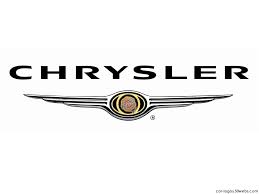Pacifica V6-3.8L VIN L (2005)

3) Apply low pressure compressed air to caliper fluid inlet in short spurts to ease piston out of bore.
4) Remove piston from caliper.
5) Remove dust boot and discard it (Fig. 30).
CAUTION: Do not use a screw driver or other metal tool for seal removal. Using such tools can scratch bore or leave burrs on seal groove edges.
6) Using a soft tool such as a plastic trim stick, work piston seal out of its groove in caliper piston bore (Fig. 31). Discard old seal.
7) Remove caliper bleeder screw.
8) Clean piston bore and drilled passage ways with alcohol or a suitable solvent. Wipe it dry using only a lint-free cloth.
9) Inspect both piston and bore for scoring or pitting. Bores that show light scratches or corrosion can usually be cleared of light scratches or
corrosion using crocus cloth.
CLEANING - CALIPER
WARNING: DUST AND DIRT ACCUMULATING ON BRAKE PARTS DURING NORMAL USE MAY CONTAIN ASBESTOS FIBERS
FROM PRODUCTION OR AFTERMARKET BRAKE LININGS. BREATHING EXCESSIVE CONCENTRATIONS OF ASBESTOS
FIBERS CAN CAUSE SERIOUS BODILY HARM. EXERCISE CARE WHEN SERVICING BRAKE PARTS. DO NOT SAND OR GRIND
BRAKE LINING UNLESS EQUIPMENT USED IS DESIGNED TO CONTAIN THE DUST RESIDUE. DO NOT CLEAN BRAKE PARTS
WITH COMPRESSED AIR OR BY DRY BRUSHING. CLEANING SHOULD BE DONE BY DAMPENING THE BRAKE
